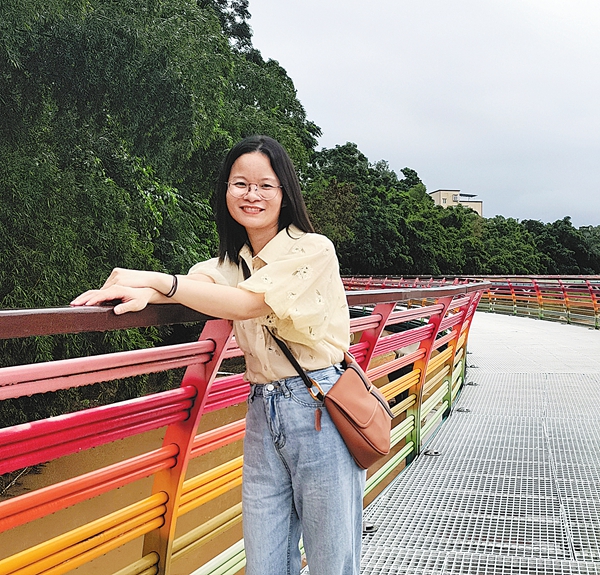

In the poem, he writes, When I stood on a rock, a particle of sunshine/Or the sound of a waterdrop, fell into my palm/Extending and flowing into the infinite, as if what I held/Was not merely purity and brightness, but in the vast life/A drop of blue touchingness.
"When I was frustrated, I would go to the seaside," he says. "Facing the vast sea, despite the anxieties and worries, I would gradually calm down, becoming open and cheerful again.
"The idea to be free and to surge, like the rolling waves, hit me again and again, as if it was pushing me. For a moment, I tried to kick and break the coastline and to get into the sea to have a profound dialogue with the sea god. I wanted to tell him, I was fully prepared to fight with life," he adds, explaining the meaning of his poem.
Born in loess, I have never walked out of the vast northwest/Under the blue sky, the Ruhe River in front is as calm as an ocean/Pour a bottle of pure water/White clouds above my head, wind blowing past my ears/The small pool at the foot can also set off surges like an ocean.
The poem, Chishui Ke Xingbo (A Small Pool Can Set Off Surges), written by 31-year-old rare-disease patient Wei Jinzhu from Pengyang county, Guyuan of Northwest China's Ningxia Hui autonomous region, won second prize. Due to the disease, he cannot live independently.
"I have never seen the ocean," he says in an introduction of the poem. "In my imagination, sometimes the ocean is calm and sometimes rough. While I was describing the beautiful and vast ocean, I thought of what my teacher Liu Tianwen told me of how to deal with the difficulties that I encountered when I just started learning to write poems. He said, although my body restricts my movement and the space of my life, I should remember that with unremitting efforts, a small pond can also make an ocean surge," Wei says.